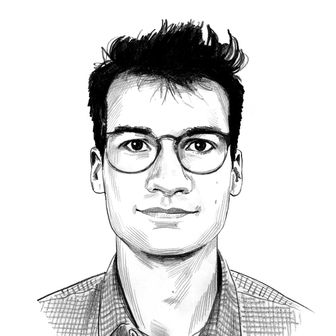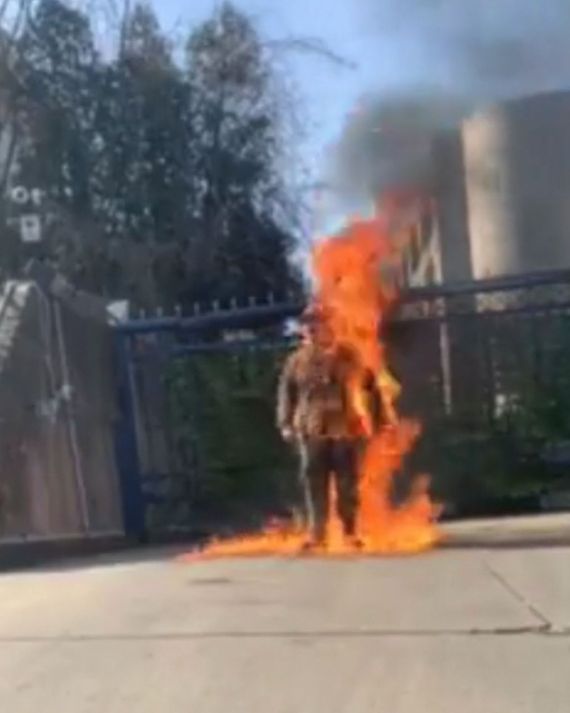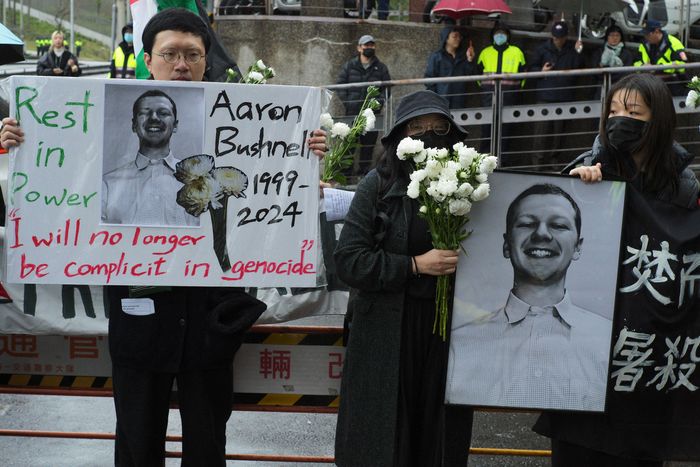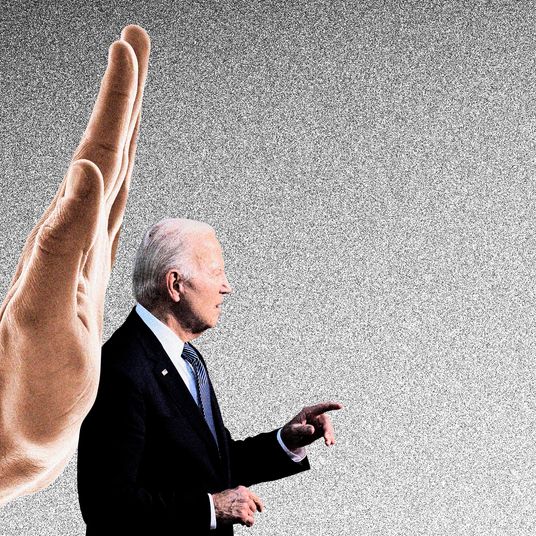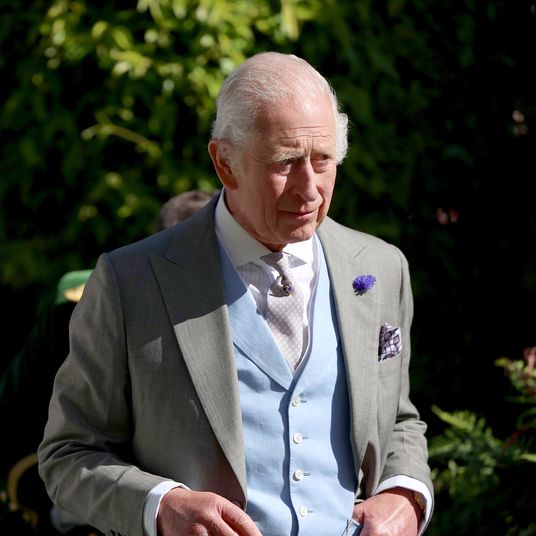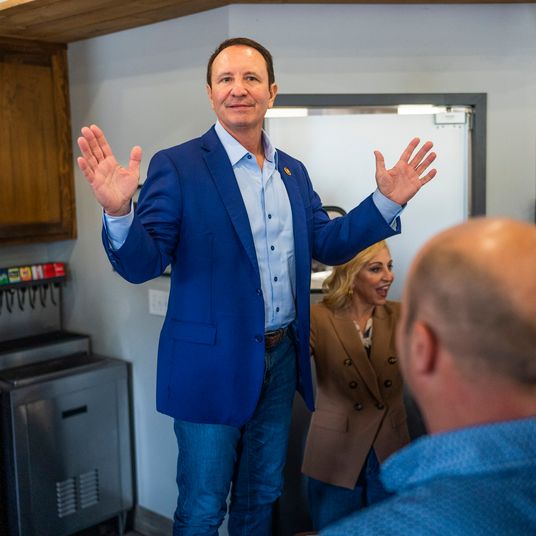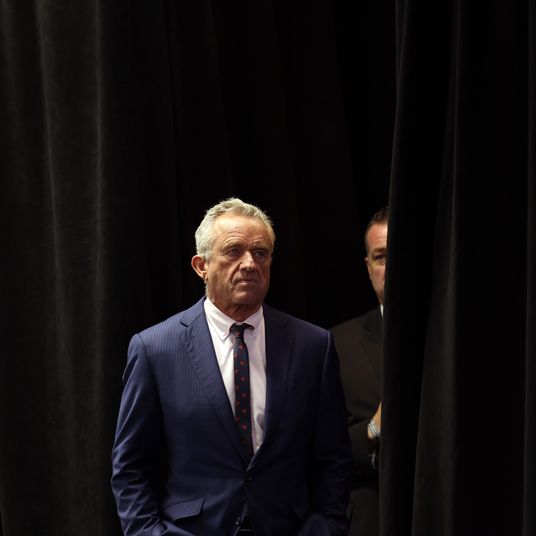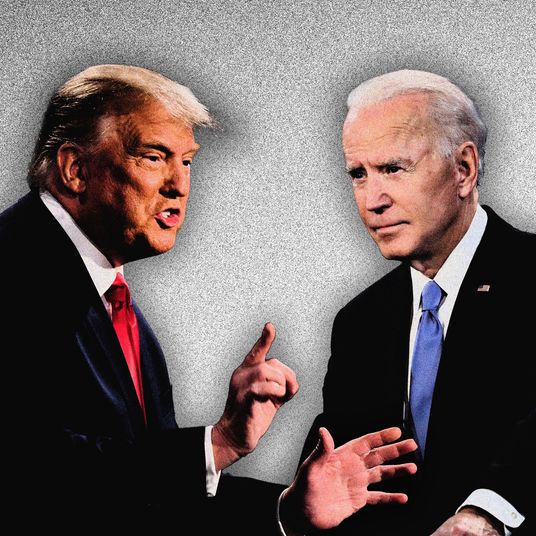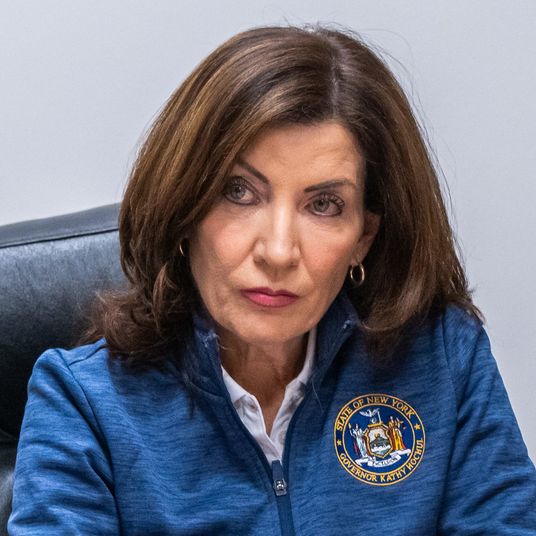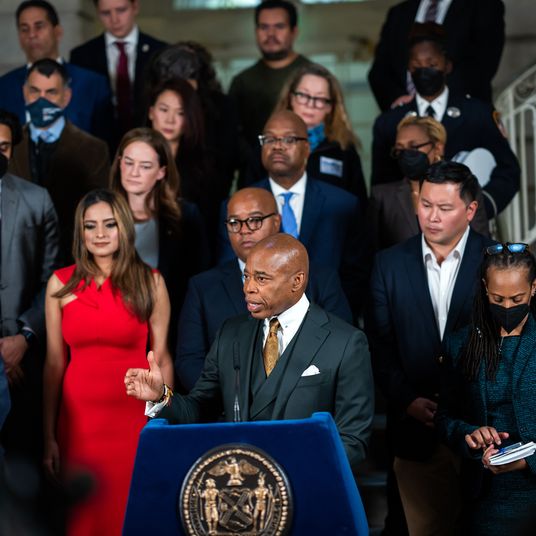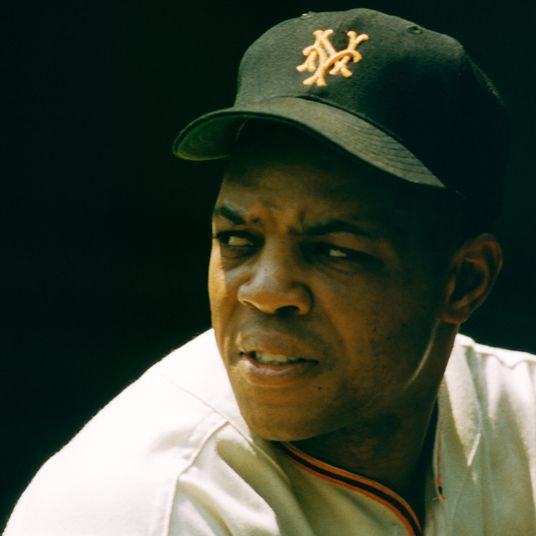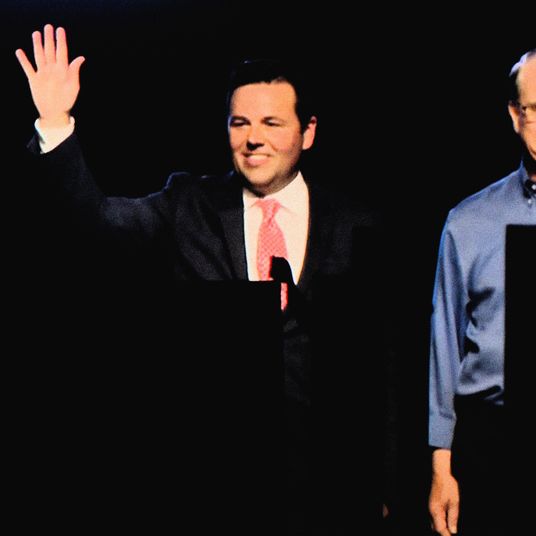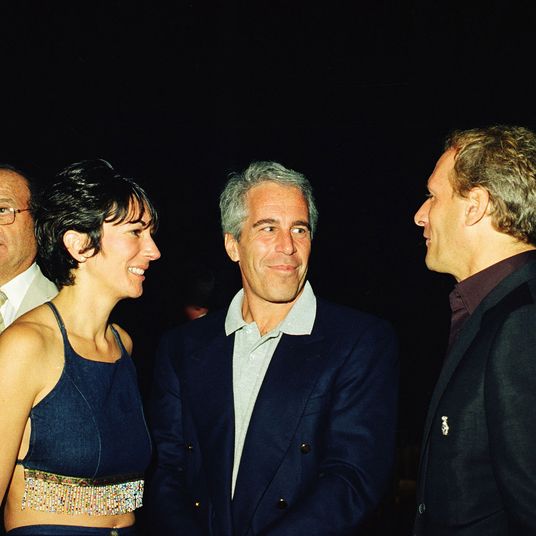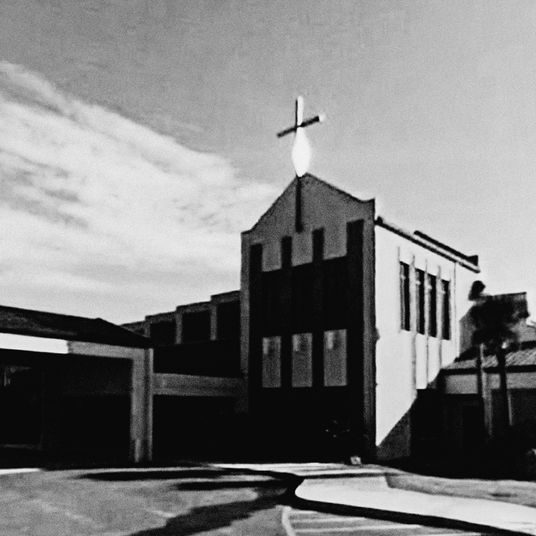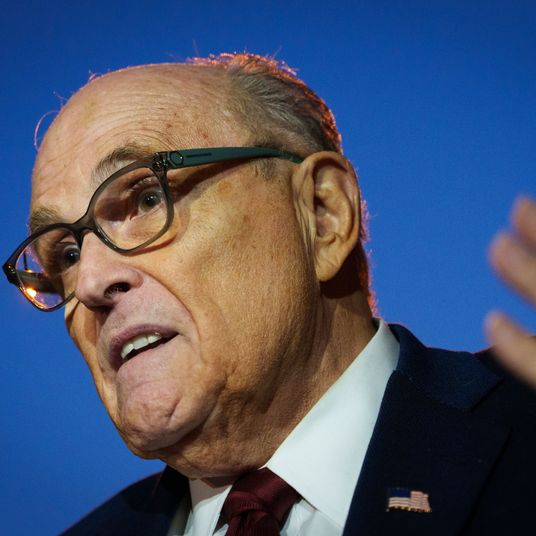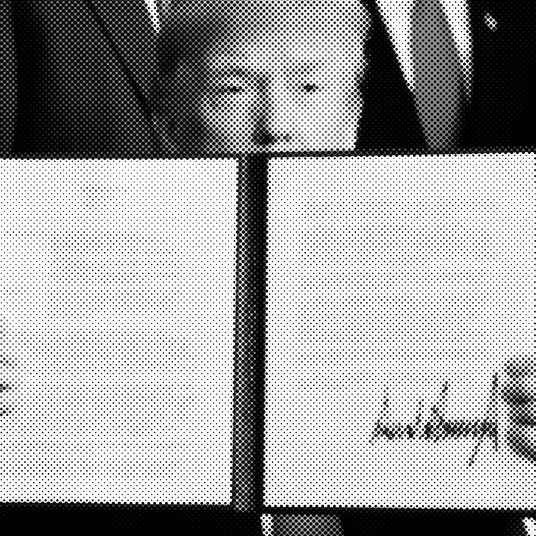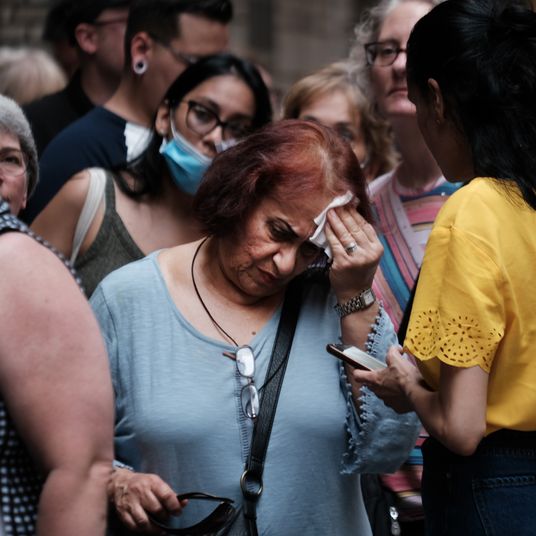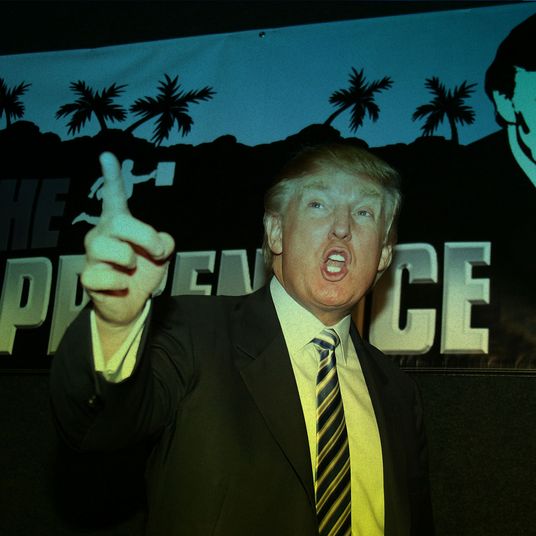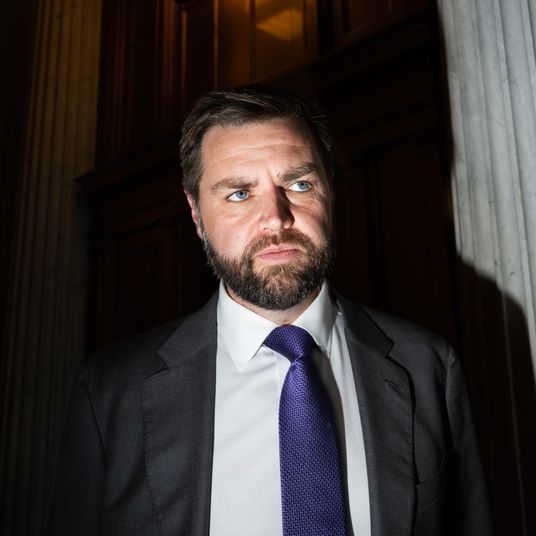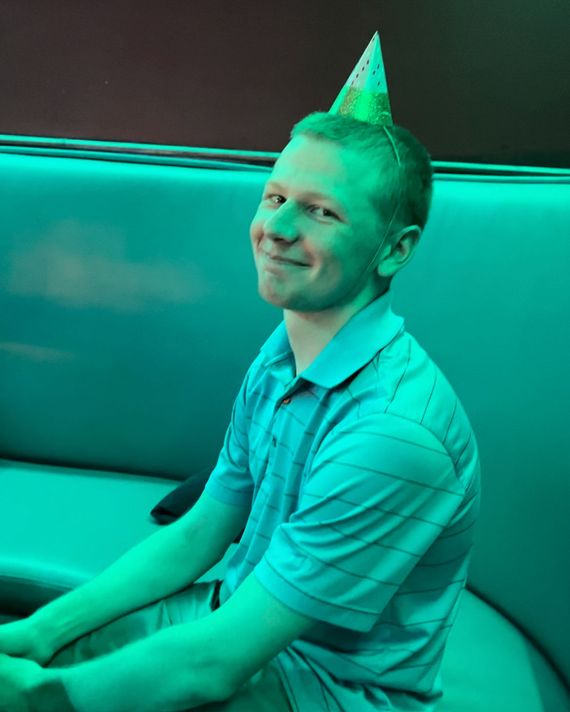
This past February, Aaron Bushnell was renting an apartment in a two-story complex in a suburb near Kent State University. He said Ohio reminded him of his hometown on Cape Cod: the red brick, the storm doors, the Protestant steeples. But his building, with its beige siding and modest fitness area, its jungle gym and scattered picnic tables, could have been anywhere. He had lived there for three months, working as an intern in the IT department of a home-improvement company. The job was part of the Department of Defense’s SkillBridge program, which transitions servicemembers into civilian life. Bushnell was aiming for a career as a software engineer, perhaps designing video games. He would be out in May, at the age of 25, after his military contract expired.
Knowing nobody in Ohio, Bushnell put unusual effort into meeting his fellow residents, at one point leaving notes at their doors. “Hello neighbor!” they read. “I am Aaron Bushnell (he/him), and I recently moved in at apartment 30. I would love to meet you! I think it’s important for us to know our neighbors and build community together.” He included a QR code to a Discord server where they could talk as well as his email for those unfamiliar with the platform. On the flip side, in vaguely satanic lettering, he had printed GREETINGS FROM YOUR FRIENDLY NEIGHBORHOOD ANARCHIST.
Bushnell texted a photo of the note to an Air Force buddy who gently suggested that his neighbors would see it and imagine murder scenes from The Purge. Bushnell conceded that the font wasn’t helping: “I didn’t realize it would be that ugly. Also I just spent $30 to print it at the library so this is what I’ve got.”
People didn’t seem to mind. An older man named Robert left Bushnell a note of his own, thrilled that somebody wanted to connect. Seventeen residents joined the Discord, and Bushnell suggested they gather in person. “Unfortunately I don’t have the furniture and can’t cook for the life of me ,” he posted. “Do we maybe want to meet in a neutral place like a park?” A few expressed interest in the idea when the weather warmed up.
Bushnell’s apartment was sparsely furnished. There was his custom-built PC and a gaming chair. Root beer and not much else in the fridge. Paraphernalia for his cat. On his desk, a copy of Parable of the Sower, Octavia Butler’s 1993 novel about a young woman living in a walled enclave at a time of ecological disaster and social breakdown — a Jesus figure afflicted with a kind of pathological empathy who winds up founding a new religion.
Also on his desk was a letter from David-Matthew Strunk, a murderer serving a 48-year sentence at a prison in Colorado. Bushnell had come across a piece of Strunk’s writing online, titled “Shepherds,” in which he posited a “new thing goin on, a kind of social manipulation” designed to screw over prisoners and homeless people alike, which looked to Strunk like the work of a global plot called “Agenda 21.” Bushnell had been distributing food to the homeless in nearby Akron and, over time, had come to harbor intense animus toward all forms of law enforcement and the military.
He sent Strunk a letter. “The idea of being ‘herded’ resonates with the experiences I’ve heard from homeless people about the way they’re treated by institutions,” he wrote. “The system just wants to keep people ‘on the treadmill.’ I think we’re all on the treadmill, just to different degrees, under different conditions. Some of our treadmills are more comfortable than others. We struggle our whole lives to try and get a nicer treadmill, instead of joining together and getting rid of the treadmills.”
Bushnell was a prolific Reddit user, posting as r/acebush1. He had lately been writing a lot about the war in Gaza. Bushnell had been living in San Antonio on October 7, the day Hamas militants attacked Israel, killing more than 1,000 people. He had been hanging out with one of his closest friends, a leftist organizer who goes by “E.,” when they heard the news. “We were like, ‘Cool, fuck yeah, they broke out of their prison,’ but then we just kind of went about our days,” E. says. Over the next few weeks, however, the conflict grew from a passing interest to Bushnell’s primary concern. By the time he moved to Ohio, he was looking for rallies to attend and feeling guilty about his lack of engagement. As the war continued, it became a theater in which he saw his political preoccupations coalesce.
When Bushnell ventured onto software forums, he was deferential and asked for advice. In political settings, he could be brusque and didactic, as though he were the one surrounded by imbeciles. Under a December photo of White House staffers calling for a cease-fire, he commented, “Israel is funded by the US, if our president says stop they will stop.” When another user wondered why the U.S. wasn’t doing more to end the war, he scolded them for playing “into the white imperialist mindset that it is our duty and burden to save the world from barbarity.”
He spent the holidays in Ohio online, posting 20 times on Christmas Eve and Christmas Day. He told critics of the slogan “From the river to the sea” that they were catering to “Zionist fragility.” He compared West Bank settlements to what the U.S. Army and settlers had done to Native Americans in the 18th and 19th centuries. He called democracy “a sham that was invented by the first great slave state of history, and not coincidentally adopted by the last.” Bushnell was as likely to lambaste the right as he was to tone-police the left, and he deemed it a sucker move to vote for anyone at all. Hamas was an “anti-colonial resistance organization.” Israel was an “ethnonationalist, settler-colonial apartheid state.” He got roped into long threads about whether Israel or Hamas was more like the Nazis.
Throughout the early weeks of the New Year, Bushnell gave little indication he was preparing to die. He ordered a bound script of a TV show he liked and was preregistered for courses at an online university. But he did prepare. On February 24, he signed a will in which he apologized to his brother and left him what he had: $37,000 in savings and a $500,000 life-insurance policy that he hoped would not be invalidated by suicide. To his neighbors, he left his cat and a $2,000 check. To E., the root beer in his fridge. He attached the will to an email and scheduled it to send after he thought he would be dead.
Bushnell drove east in his 2010 Toyota Prius, spending the night at a Travelodge in Silver Spring, Maryland. The next day, he completed the last brief leg of his trip to northwest Washington, D.C., where he parked, took out his phone, and livestreamed himself walking through a cul-de-sac of embassies. “I am an active-duty member of the United States Air Force. And I will no longer be complicit in genocide,” he told the camera. The lens captured him in profile, dressed in uniform. “I am about to engage in an extreme act of protest. But compared to what people have been experiencing in Palestine at the hands of their colonizers, it’s not extreme at all. This is what our ruling class has decided will be normal.”
Bushnell stopped outside the Israeli Embassy and set his phone down in a way that suggested it was affixed to a small tripod. He raised a metal water bottle, which was dark blue and decorated with stickers and his name, and doused his head with liquid. For about 15 seconds, he tried to ignite the hem of his pants with a lighter. Somebody off-camera asked, “Sir, can I help you?”
He succeeded, eventually, in lighting the liquid that had pooled at his feet. Flames rose, engulfing him. He yelled, “Free Palestine,” then yelled it again, repeatedly, until his words became indistinguishable from his screams. Bushnell’s face appeared to melt. Someone yelled for him to get on the ground, then called for a fire extinguisher. Bushnell staggered and crumpled into a fixed position on his back; his left knee buckled. His pants burned away to reveal the silver-black skin of his leg. A number of personnel from the U.S. Secret Service were nearby, and one of them, wearing a white shirt, started spraying Bushnell with a fire extinguisher.
Another appeared with a gun, training it on Bushnell’s charred and supine body. The first agent told him they needed more extinguishers, not guns. Somebody arrived with a medic bag. “What is this?” said one of the agents, picking up Bushnell’s phone, and the feed went dead.
The spectacular way Bushnell ended his life almost guaranteed that the reactions to it would come in extremes. Many on the pro-Palestine left received Bushnell as a revolutionary figure or martyr akin to the Buddhist monk Thich Quang Duc, who set himself on fire in Saigon in 1963, or the Tunisian fruit vendor Mohamed Bouazizi, who did so in 2011 and started the Arab Spring. Stylized images of Bushnell’s blazing silhouette circulated on social media. Protesters began wearing T-shirts with his face and writings. A street was renamed for him in Jericho, and billboards and posters went up in Yemen and Malaysia. Ai Weiwei posted tribute photos on Instagram. An n+1 elegy called “Burnt Offerings” located a thrilling logic in Bushnell’s act, noting that he was already working for “the mightiest incendiary device that humans have ever constructed.” The author connected Bushnell’s gruesome death with his own feeling of outrage: “Perhaps this is why he did it: he was already burning. I guess we all are.”
In the ensuing cycle of counter-takes, liberals and centrists warned against glorifying suicide, while the right received Bushnell, callously, as the victim of an epic self-own. There’s a meme of his face on a mock cover of People with the headline “Hottest Man of the Year.” Military forums filled up with in-group gallows humor: “The only thing he’s been complicit in was falling asleep on fire guard.” A debate about Bushnell unfolded on his father’s Facebook page, which he had not set to private. People seemed to consider Bushnell either incomprehensibly deranged or in possession of great moral clarity.
Becoming an abstraction was, of course, inevitable. He chose a symbolic way to die and broadcast it in real time on the internet, an unprecedentedly visible version of an ancient act. He appears to be the only active-duty U.S. servicemember to kill himself in this way, and he understood the semiotics of doing so in uniform before his contract expired. Posthumously, he became the poster child for a largely leader-less and anonymous antiwar movement.
None of this was remotely imaginable four years earlier when Bushnell showed up at Air Force Joint Base San Antonio–Lackland for basic training. He looked like an ordinary airman: 21 years old, no college, a massive Bible in his bag. It was May 2020, and he didn’t have much in the way of money or job prospects. Before enlisting, he had been running the eBay operations at a pawnshop in Massachusetts and had sought work as an Uber Eats driver.
Basic training was not the stuff of Top Gun: It was an eight-week slog of drills, weapons familiarization, explanations of airmanship, and HR presentations. Masking was compulsory. Bushnell’s chores included sweeping dust and keeping dormitory beds aligned with a piece of string. When his fellow enlistees got into political arguments, he mostly held back; his views leaned liberal, but he carried a baseline patriotism and an enthusiasm for the military. “Man, the Air Force does some cool-ass shit,” he once posted, uploading an image of a C-130 Hercules decked out with rockets. When someone complained about the low pay, he admonished them: “You can’t pay someone enough to risk their life for their country.” That’s why, he explained, it was called service.
Religion, more than politics, consumed his inner life. Throughout his teens, he’d had several changes of heart about his faith. He was a believer, then a skeptic, then a self-described “hard-core Christian.” At 18, on a faith trip to Italy, he found himself wavering again before rediscovering the Holy Spirit at the Basilica of St. Anthony of Padua. He recalled, “It was like my entire body was made up of a thousand spinning magnets.”
Bushnell liked arguing with atheists online, a habit he kept up in the Air Force. He was well versed in Scripture and could cite the theologian Dietrich Bonhoeffer or whip out Bible verses to KO Christians he felt were being unchristian. He could also operate in a more earnest vein. When someone posted that they were contemplating suicide, Bushnell replied, “Jesus Christ sacrificed himself on the Cross for YOU. You have the unbreakable love and power of Almighty God behind you.” When another poster asked if anyone abstained from sex before marriage anymore, Bushnell answered, “Yup. 21 y/o guy here, planning on waiting.”
In basic training, Bushnell attended Catholic Mass, which for COVID reasons was pretaped and shown on screens in a chapel. One day, a fellow airman, Levi Pierpont, saw him pull out a chair and genuflect beside it. Bushnell explained that he wasn’t actually Catholic; he had grown up in a commune on Cape Cod called the Community of Jesus. He had recently parted ways with the sect, and he could be cagey about it. It was a little hard to describe: The community was governed by a prioress, referred to as Mother. There was a monastic order of celibate Brothers and Sisters as well as families, though children sometimes lived apart from their parents. When Bushnell left the grounds, it was often to participate in high-intensity drum competitions. “The life,” the adherents called it. To Pierpont, the son of an Evangelical pastor from Kalamazoo, Michigan, it sounded like a cult. Bushnell demurred. “He was like, ‘No, it was a really great space, but I just had to leave,’” Pierpont tells me.
After basic, Bushnell traveled to Keesler Air Force Base in Mississippi for specialized training in information technology. He hoped to then be deployed overseas, and his wish list of bases included locations in Italy, Guam, Japan, Germany, and the U.K. Instead, he was reassigned to Lackland. He moved into an apartment complex on the scrubby outskirts of San Antonio that was hemmed in by Interstate 410 on one side and chain-link fencing on the other. Dogs penned in yards barked nonstop when the rare pedestrian walked by.
Bushnell was one of 6,200 servicemembers, nicknamed Roosters, in the 70th Intelligence, Surveillance, and Reconnaissance Wing. His squadron provided cybersecurity support for missions in North and South America. Like most of his colleagues, he worked alongside the National Security Agency, and his apartment was located just a few hundred yards from the NSA’s Texas headquarters. Those who knew him think it’s unlikely Bushnell had access to high-level government secrets. According to the Air Force, his job entailed “responding to trouble tickets such as outages and service interruption, and performing technical troubleshooting and recovery.” He was an IT guy in the so-called Chair Force, where the base pay was about $2,000 a month.
Bushnell was shy, sometimes awkward, and he forced himself to cultivate social networks. He made a handful of friends in San Antonio after he began attending services at an Anglican church called the Gathering in the summer of 2021. One of them told me their usual routine consisted of grabbing takeout from Whataburger and watching something on a laptop. Bushnell enjoyed the comedian Bill Burr, Netflix’s Unorthodox, and the universes of Star Wars and The Lord of the Rings. He also kept up a regular correspondence with Pierpont, who is gay and had been assigned to a place where there weren’t a lot of men to date. “I’m sure you have a lot more options lol, straight + big city and all,” Pierpont texted. Bushnell replied, “Straight + big city never so much as held a girl’s hand before and have no idea how to date = I’ve been chatting with someone on Hinge for a little while.”
That fall, someone broke into Bushnell’s car, and he struggled to compute its meaning. “It feels like I’ve done everything I can to build a good life, and a bunch of senseless chaos is happening to me, and I can’t do anything about it,” he wrote to one of his new church friends, Stuart Rowe. It seemed clear to Rowe that as Bushnell was drifting from his faith, he was also grieving the loss of the social bonds built into his childhood at the Community of Jesus. “He talked very positively about the overarching sense of belonging,” Rowe says.
Around this period, Bushnell visited home, probably for the last time. An adult member of the commune saw him sitting by himself in the basilica, an impressive multimillion-dollar structure by the ocean where Gregorian chants were sung four times a day. “He was one of the few young people who liked services,” the member tells me. He went to greet Bushnell, but he seemed closed off, unwilling to discuss his Air Force life. “There was an odd veil in front of him,” the member says. Bushnell wanted to stop by a Community-run business he had worked in, he told Rowe, but heard he wasn’t welcome. He was an outsider now, and a visit wasn’t part of God’s will.
One of his last tethers to the Community was a childhood friend named Ashley Schuman, who had recently departed the sect. She worried about Bushnell and his seeming inability to move on. “I personally at that time thought he probably never should have left,” she says. “He compared everything in the world to the Community, just because that’s all we ever knew.”
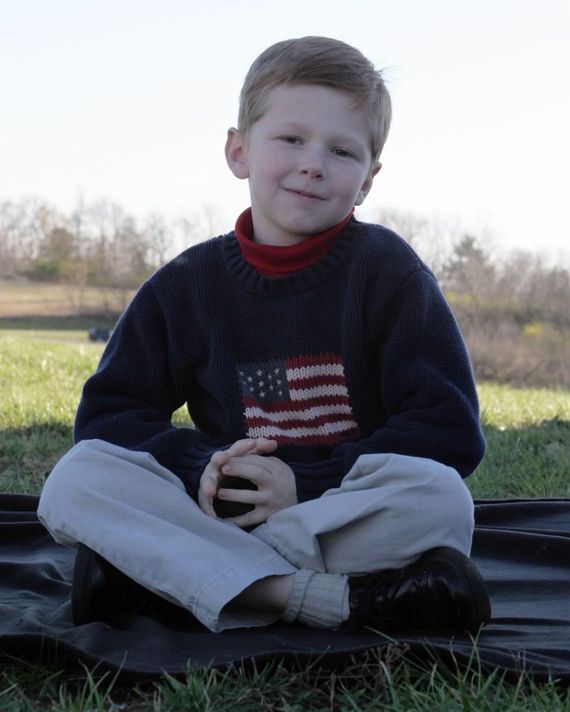

Bushnell was raised a quarter-mile from the Atlantic Ocean on a street called Defiance Lane. His mother, Danielle, taught history and government to the Community’s homeschooled children and worked at the in-house Christian publishing imprint, Paraclete Press. His father, Dave, supervised construction at a Community-run building company. Aaron had a younger brother, Sean, and they lived in a gray-shingled house that was one of roughly 25 owned by and passed among members. It had been christened with a biblical name, Bethel, after the holy site in the present-day West Bank where God came to Jacob in a dream, granting him the promised land of Canaan.
The Community of Jesus is its own kind of exalted place. Its pristine 12-acre grounds are located off Rock Harbor on the bay side of the Cape, where the low tide skims over the sandbanks in a way that practically lets its people walk on water themselves. The organization was incorporated in 1970 by a well-to-do faith healer named Judy Sorensen, who summered in Orleans, and her friend Cay Andersen. Their families began sharing a beachfront home, eventually attracting hundreds to live communally in nearby houses. Befitting its location, the early membership was heavy with Wasp refugees from New York and Boston; it included scions of the extended Rockefeller clan and a future chairman of the U.S. Chamber of Commerce. And while there was a class divide between those with inherited wealth and those who arrived with little, fealty to the collective was paramount. “Let go of your independence, mind, and everything you hold close,” one of the leaders once wrote to a member. In time, Andersen and Sorensen started wearing long robes and asked to be referred to as Mother Cay and Mother Judy. They began living apart from their husbands, and everybody else, in a large room with a single king-size bed.
The Community cast itself as a refuge. Outside was moral decay: abortion, pornography, drug abuse. The Mothers blamed this partly on the breakdown of the family, which they in turn blamed on parents who had coddled their children, ruining them with love that should have been flowing to God — a dynamic they called “family idolatry.” Like an uptight, white-bread version of the free-love communes flowering in parallel across the country, the Community of Jesus dissolved the nuclear-family structure. Families were moved around and recombined at the Mothers’ direction. In another hippie inversion, Sorensen and Andersen preached a fire-and-brimstone brand of radical transparency in which members confessed their sins and were excoriated by their peers in purification sessions.
By the time Dave and Danielle Bushnell arrived in the mid-1990s, the local press had published a number of exposés. Each surfaced the same patterns: the authoritarian-charismatic leadership, the way filial love had been contorted into a taboo. A steady flow of members left, but true believers dismissed them as insufficiently devoted. In any event, the Bushnells were grandfathered in. Dave had been raised at an associated boarding school in Ontario, where his father managed the facilities. (In 2023, the school settled a class-action lawsuit, brought by ex-students alleging abusive behavior, for approximately $8 million. It is now closed.) Danielle’s mother had moved to the Community after learning about it at one of Billy Graham’s crusades. They got married and had Aaron in 1998.
By then, a new head Mother was carrying out Cay and Judy’s teachings. Aaron’s friend Ashley, who was first separated from her parents at 16, and whose brother was sent to live with the commune’s monastic Brothers at age 6, remembers that Aaron was luckier than many Community children. The Bushnells lived together, mostly at Bethel, she recalls, with other families coming to join them.
Ashley and Aaron were part of a homeschooled cohort of roughly 15 students. Their teachers included lay members as well as Brothers and Sisters, some with advanced degrees. Ashley describes the instruction as surprisingly well rounded given the insularity and reflexive conservatism of the sect. They read the classics, like Shakespeare and To Kill a Mockingbird, and studied geometry and chemistry. Ashley saw Aaron as moody and combative; he brightened when jousting with his teachers. “He was an instigator,” she says. “He liked to be right. He would just sit there casually and banter with them.” Unusually, Aaron spent his sophomore year at the local public high school. Ex-members say he was sent there as a consequence after a physical altercation with another child at the Community.
The commune emphasizes sacrifice and rigor. Its leaders prize the arts, and it boasts a chorus that performed in Europe and garnered positive reviews in the Boston Globe and the New York Times. Bushnell and the other children who composed its youth percussion ensemble were held to the same intense standard, logging 12-hour practice days to prepare for competitions. The Community regards itself, in the words of an ex-member, as “God’s elite, His Delta Force.” Adults work constantly, sometimes supplementing their low-wage jobs at Paraclete by moonlighting for local senior-care companies. A longtime friend of Dave and Danielle Bushnell’s, whom I’ll call Beth, tells me the couple drove themselves to exhaustion. “They don’t relax,” she says. “They don’t know how.”
While ultimate authority lies with the commune’s Mother, individuals are almost radically empowered to police one another’s behavior, and communal living means sharing not just groceries and household duties but the disciplining of children. “Any adult, at any time, can correct a kid for any reason. It’s frightening for them. They don’t feel there is someone on their team,” says Beth. Parents may hesitate to defend their children; they are told they are too biased to “see them in reality” and are in danger of appearing idolatrous. This reorients loyalty away from family and toward the sect, says Wayne Schuman, Ashley’s father, who also left the group: “The whole basis of the community is to divide and conquer.”
The commune has a governing document, the Rule of Life, which explains that “living in close proximity with others makes it impossible to hide our faults from one another. For the sake of maturing in our common life and in our individual discipleship, we are responsible to live in honesty with each other.” Dave and Danielle Bushnell were well versed in this dogma. Ben Bott, a former member, shared a home with Dave after he moved down from Ontario. “Every night, the whole dinner table would abuse him verbally. Talk about how bad he was, such a sinner,” Bott says. “I remember his face turning red. He was a mild-mannered, decent guy.” Others describe Danielle as anxious, rigidly patriotic, and opinionated. “She’s not an easy person to be around,” Beth says, “because her emotions are very strong and you can kind of get blown over by them.”
Jeffrey Robbins, a lawyer for the Community of Jesus, disputes much of this account of the group, saying its “only ‘sin’ is that it takes the teachings of Christ to heart and attempts to live those teachings in a humble and sincere way.” He adds, “There is no policy of separating children.” According to the Rule of Life, “Married couples, children, and single adults, some of whom have committed themselves to perpetual celibacy, live as extended families within Community households. Those living in households are prepared to move periodically from one home to another.”
It’s hard to know exactly what Aaron’s domestic life looked like. His parents, who remain members of the Community, did not reply to interview requests. But Bushnell later told his friend E. about the confession rituals, which often took place over dinner. What one was meant to confess, or why it constituted a sin, wasn’t necessarily clear. “They were expected to say everything about their day, and that would then be used to manipulate them,” E. says. He remembers Bushnell telling a story about “confessing” to the members of his household that he had a crush on a girl he worked with, prompting them to recommend he quit his job. Bushnell, E. says, was “involved in all the rituals of shaming and being shamed. He was a full believer.”
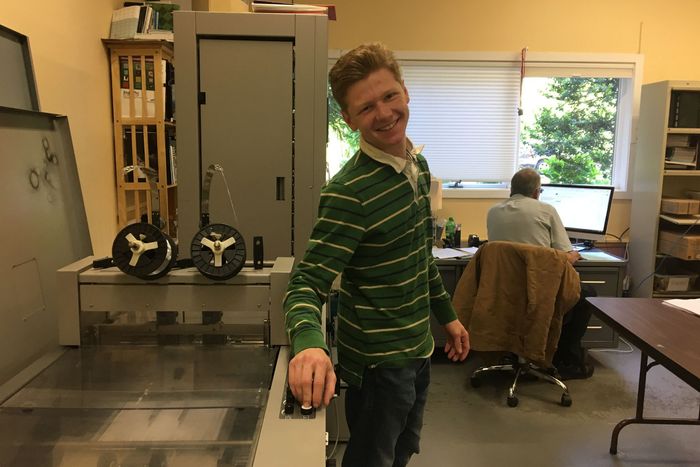
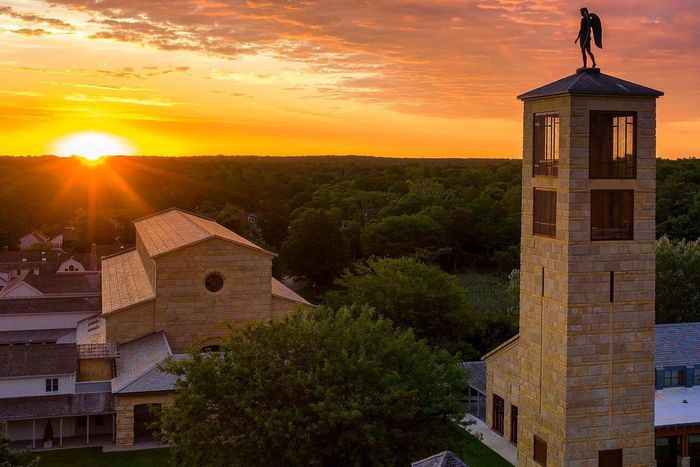
One of the few people who helped Aaron gain a view of the world outside the Community was Thomas Ryan, who used to head the Cape Cod Council of Churches. Although he was not a member of the Community, he oversaw its Sunday-school curriculum in the 2010s. He once chaperoned its children on a field trip to Harvard Square, where they attended a Catholic Mass at St. Paul’s Parish. “It was stupendous,” Ryan recalls. “They saw this expressive, joyous liturgy. Aaron came out and said, ‘Other places in the world have this?’”
Ryan also escorted Aaron and his classmates on a trip to the Holy Land. While the Community overwhelmingly viewed Israel in divine terms and believed in America’s duty to align with its interests, Ryan had long advocated for Palestinian rights and statehood. He took Aaron and the others to the West Bank, hoping to introduce them to Palestinian Christians. In the moment, it was hard to tell what impact the visit had on Aaron’s thinking.
Aaron completed his high-school studies in 2016, the year he turned 18. Although the commune’s early members tended to be well educated, Aaron’s generation wasn’t generally encouraged to leave for college. “There’s not a great desire on the part of the adults to make sure their kids get the highest possible education,” Ryan says. “A goodly number would say that they see lots of evil and want to keep their kids free from drugs and other problems.” Aaron went to live for a time in a communal home with several other young men. Under the tutelage of some adults, they took part in a grueling “boys’ camp” meant to hone their spiritual and physical toughness. One day, according to a former member, Aaron committed an infraction and was told to “get out — just walk away right now.” He took it literally, thinking he had been expelled from the Community. “They found him seven hours later behind some shack over in the harbor with a pillow,” the former member says.
His job at Paraclete presented its own trials. Working alongside his mother, he had responsibilities in three areas: printing, IT, and maintenance. Multitasking was a problem for Aaron. He struggled to compartmentalize information, focusing intently on some tasks to the detriment of others. As those who knew him describe it, he could fill the file cabinets of his mind with knowledge but couldn’t always figure out which drawer to open when he sought out information. This sometimes made routine tasks exhausting. In school, it could take him forever to finish his homework.
“Thinking about the level of pressure on him, why the fuck do you do that to a kid when he can’t handle more than one thing at once?” says a Paraclete colleague. “I didn’t do it, but I was part of that attitude. You put pressure on the person until the person pops. And then that is what the ‘healing’ comes out of.”
Children aren’t technically members of the Community, and when they come of age, they are encouraged to declare their permanent membership or consider their options elsewhere. In the fall of 2019, Bushnell chose to leave. The military was an intuitive landing spot and a way to part on good terms. Service ran in his family; Danielle’s father was killed crash-landing a helicopter in Vietnam, and Dave had served in the U.S. Army. The choice also coded as conservative. It too demanded fidelity to a higher cause, and for Bushnell there might have been comfort in trading one regimented environment for another.
Those born into the Community are told God called them to live there, Beth says. If they leave, they’re largely forced to fend for themselves. Any misfortune that befalls them becomes a self-fulfilling prophecy. “If anything goes wrong in their life — well, they became disobedient to God,” she says. “When somebody leaves, they are really expecting the bottom to drop out. They’re expecting God to be angry.”
Bushnell’s church in San Antonio closed in the spring of 2022, but by then he was already losing interest in faith. He spent less time in Christian sub-Reddits, saying he didn’t “technically believe this stuff anymore,” and more time in anarchist forums.
He had been steadily moving to the left. After Joe Biden’s inauguration in 2021, Bushnell approvingly commented on a photo of a bipartisan coterie of ex-presidents, captioned “Civility”; the next year, he was checking out a fringe group called the Party for Socialism and Liberation. That’s where he met E., who got him involved with a group that did good deeds with a progressive bent around the city. They held weekly trash pickups, which they hoped would be a disincentive to the police to clear homeless encampments, and distributed food, water, Narcan, and contraceptives.
The activists in E.’s circle favored pseudonyms: There was “Moon” and “Moth” and “T-Bear,” a ringleader of sorts with a day job in branding. They were in their 20s and 30s and, like Bushnell, hyperconscientious, wearing masks outdoors and showing sensitivity about pronouns. “He was shy initially,” says Lupe Barboza, one of the few group members who uses her real name. “I think he was concerned with sounding naïve or maybe less educated than other folks who were leftists for much longer.”
Bushnell’s specific commitments calcified quickly. Many strains of socialism he rejected as “class reductionist.” Online, he argued with “MLs” — Marxist-Leninists — whom he felt were as beholden to authoritarian leadership as any conservative. He was attracted to anarchism with its ethos of statelessness and individual autonomy. Bushnell started mainlining videos on anarchist YouTube and adopted the dense vernacular of a seasoned leftist. He sometimes called himself a libertarian socialist.
“I’m definitely more obsessive than most people — as in, when
I get into something, I get really, really into it,” Bushnell once told Pierpont. “Most people buy and play dozens of video games, but I really just have four that I play regularly, and I play the fuck out of them.” T-Bear says Bushnell was the single most devoted presence at their weekly “distros,” to the point where he burned out and had to step back. Bushnell messaged the group, “I hope it isn’t oversharing to say that this is due to past trauma I have, which makes it difficult to participate in organizing in healthy ways.”
His political evolution continued, and by the spring of 2023, he was dismissing Bernie Sanders as too conventional. Bushnell favored the abolition of police; he rejected gun control on the grounds that the government would first disarm minorities, who would then be unable to defend against “state violence.”
He began to rebel in small ways. When a superior asked Bushnell if he wanted to walk a 5K to benefit the military and police, he typed back “acab” — all cops are bastards. Writing a bio for a PowerPoint presentation, he paraphrased the Russian anarchist Mikhail Bakunin: “When the people are being beaten with a stick, they are not much happier if it is called the Freedom Stick.”
His day-to-day experiences in the Air Force fueled his opposition to militarism in general. He chafed at the veneration of rank, the “humiliation ritual” of saluting his superiors. “My dad loved talking proudly about how America is the world police when I was a kid,” he wrote. “Now I’m an adult and I’m like … yep, that’s accurate.”
At the same time Bushnell was transforming in San Antonio, the Community of Jesus was undergoing a radicalization of its own. The sect had once subscribed to a Reaganite vision of conservatism, and Bushnell marveled that many members were turning to “YouTube prophets,” as he called them, who fused Evangelical revelation with MAGA politics. Ex-members say the commune’s leader began recommending QAnon content.
Several people who have been at the Community recently told me they’ve noticed paranoid behavior, including off-site target-practice sessions. Large piles of sand, apparently designed as barricades, began to materialize. One person says he took part in evacuation drills meant to prepare members “if BLM comes marching down to protest us as Christians or if the grid collapses — if things go to hell.” (“Pure bullshit,” says Robbins, the Community’s lawyer.)
Stuart Rowe, Bushnell’s church friend in San Antonio, remembers the anger he bore toward his family as their respective politics cleaved apart. “He was angry that they wouldn’t open their eyes,” he says. To Bushnell, the world’s problems seemed so clear. He saw every evil he could identify — whiteness, settler colonialism, patriarchy, capitalism, cishetero normativity — as one thing: “the domination of classes of people by other classes of people.”
Bushnell’s aversion to hierarchy and punishment did not feel accidental. In early 2024, he became obsessed with the BBC program Fleabag, which he did not view as a comedy. “I am a survivor of a toxic, abusive family system and this show resonated with me very deeply (in a way I was not prepared for lol),” he wrote on the show’s sub-Reddit. “Fleabag’s family is very abusive towards her … Whenever they are feeling feelings they can’t deal with, they relieve themselves by dominating her, insulting her, accusing her, or hurting her. When she cracks under the pressure, this is seen as proof of her bad character and her behavior is blamed for the family’s problems.”
To his activist friends, Bushnell’s time in an oppressive cult granted him moral insight. As E. puts it, “He clearly saw the latent fascist logic of our society.” A harsher view is that he merely traded one dogma for another. In this reading, he was predisposed to extreme thinking and had no built-up immune system to resist it — as if within him were a kind of absolute value of radicalism, bound to polarize in one direction or another. The truth is probably in between: His sincere desire for communitarian utopia is impossible to separate from the fact that he grew up in a place that claimed to be just that. He sought to flatten inequality in every domain. He owned cats but fretted about the ethics of owning another being. He believed in “relationship anarchy,” a nearly paralyzing model of love that seeks to neutralize power imbalances. His friends don’t believe he ever dated or slept with another person.
When Bushnell began following Israel’s assault on Gaza, the dynamic struck him as tragically familiar: A stronger force was dominating a weaker one, in this case with the backing of his employer. For someone consumed with authoritarianism, his black-and-white view of the conflict required ignoring the repressions of Hamas, but he was also earnestly reacting to civilian suffering on the Gaza Strip. In any case, he had made up his mind about which side was the victims and which the oppressors. “No aggression against the Israeli colony can be condemned by non-Palestinians,” he wrote, arguing online with someone denouncing Hamas’s assault. “It’s their land and their people that are being aggressed. The tactics of defense are up to them.”
The November before Bushnell died, he came to a sort of epiphany about suffering, guilt, and empathy. In a text to a friend, he jotted it down like a mathematical proof. It read in part:
be horrified by the realization of what non-white people experience under white supremacy
all of the pain you have locked away senses an opportunity to be processed and comes knocking
still resist looking at your own hurt because that’s what you’ve been conditioned to do and also the suffering of others is easier to focus on
fixatedly gaze at the suffering of others partially as an escape from your own pain
your pain refuses to go away and calcifies into a heavy weight you experience as shame
His friend replied that he thought this all made sense.
Bushnell once bought a sword at a thrift store, negotiating the price from $60 to $50. He joked with his friends in Texas he would use it to liberate people at the Community of Jesus. Anarchists have bombed buildings and assassinated kings. In the end, Bushnell was violent only toward himself.
If you ask Community members to name the group’s most important line of Scripture, they will cite John 12:24, in which Jesus says, “Unless a grain of wheat fall into the ground and die, it abideth alone; but if it die, it bringeth forth much fruit.” On the Community’s literature, a wheat stalk forms part of its insignia. The verse underlines the Christian centrality of self-abnegation, the erasure of one’s ambitions and pleasures — the death of the self for the greater good.
In his will, Bushnell listed a stipulation. “My friends can mourn my death however they wish,” he wrote. “If there is to be a funeral, I do not wish it to have any religious elements, nor do I wish for any members of the Community of Jesus to be present. They are in love with the system that I am trying to burn.” But he signed the document in the absence of a witness, apparently rendering it invalid. In March, he was buried at a cemetery in his hometown after a service led by believers of the Community of Jesus.


